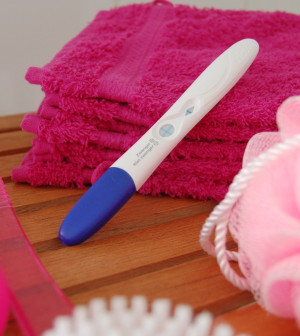- 10 Strategies to Overcome Insomnia
- Could Artificial Sweeteners Be Aging the Brain Faster?
- Techniques for Soothing Your Nervous System
- Does the Water in Your House Smell Funny? Here’s Why
- Can a Daily Dose of Apple Cider Vinegar Actually Aid Weight Loss?
- 6 Health Beverages That Can Actually Spike Your Blood Sugar
- Treatment Options for Social Anxiety Disorder
- Understanding the Connection Between Anxiety and Depression
- How Daily Prunes Can Influence Cholesterol and Inflammation
- When to Take B12 for Better Absorption and Energy
Very Young Babies Sense Touch Differently

When you touch a newborn’s hands or feet, the infant doesn’t identify that sensation the same way older babies, children and adults do, a new study suggests.
This situation lasts for about the first four months of a baby’s life, according to the results published Oct. 19 in the journal Current Biology.
“Our findings are really the first to address what is quite a fundamental question about our sensory experience in early life,” Andrew Bremner of Goldsmiths, University of London, said in a journal news release. “When young babies feel a touch on their hand, can they appreciate where that touch is in the outside world?”
The answer is no, revealed the tickling tests on the feet of 4- and 6-month-old infants.
“We think [this means] that before around 6 months of age, human babies perceive touches just on their bodies, and not in the external world. If one tries to imagine what this must be like — it’s a bit of a dizzying idea,” Bremner said.
The researchers said that young babies perceive touches as just touches on the body. They don’t perceive them as being related to what they see, hear or maybe even smell, Bremner explained.
“[Touches are] not related to objects perceived in vision. To me this sounds like quite an alien sensory world to live in — the tactile world being quite separate from the other sensory worlds,” Bremner said.
The next phase of this research is to learn how and why infants develop a sense of themselves in the world, the investigators said.
More information
The U.S. National Library of Medicine has more about infant and newborn development.
Source: HealthDay
Copyright © 2026 HealthDay. All rights reserved.










